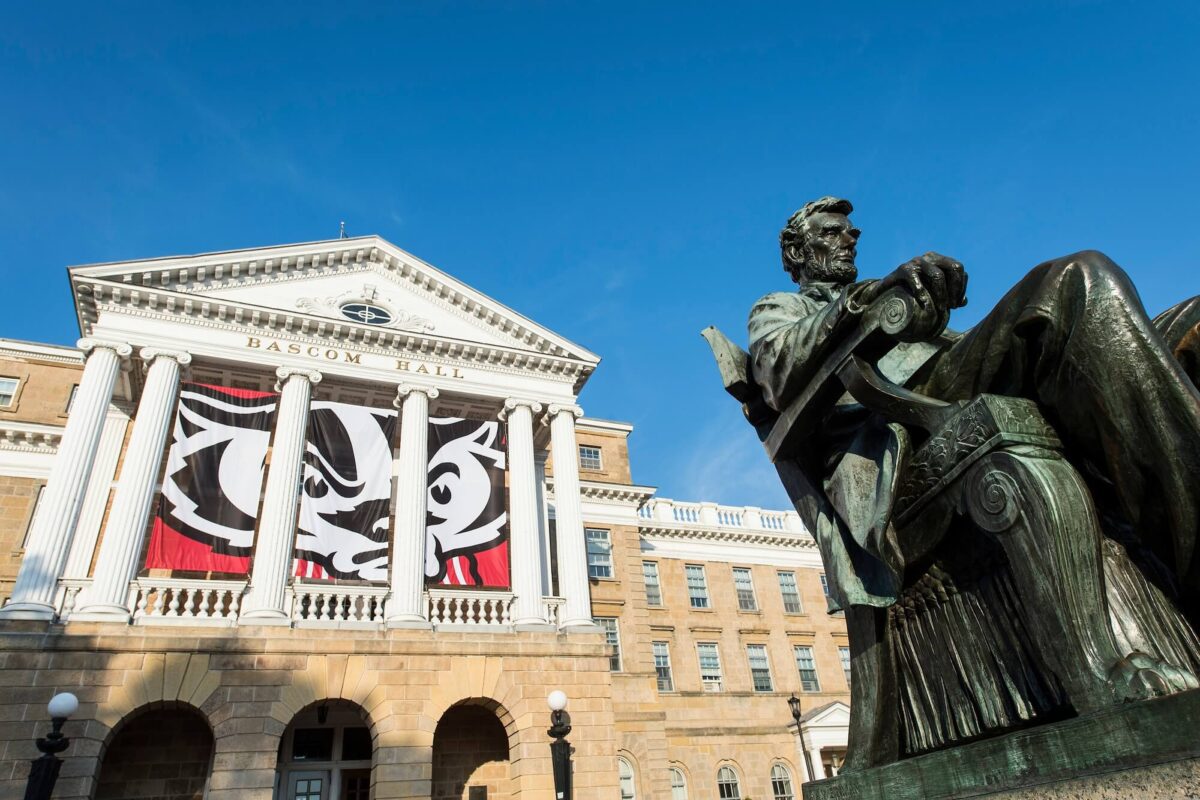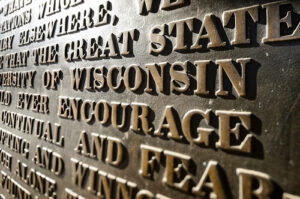
This fall, Wisconsinites can learn more about the state’s people, places, and ideas with University of Wisconsin–Madison Continuing Studies. A special set of classes and events exploring the Wisconsin Idea—the philosophy that the University of Wisconsin should serve all residents of the state with opportunities for intellectual, creative, and community growth—begins in mid-September.
“All of the programs in this series are aimed at helping people better understand pieces of Wisconsin’s history and its present,” says Jessica Courtier, who directs arts, history, and humanities programs in Continuing Studies. “Several of the events take on problematic parts of Wisconsin history and reckon with them while acknowledging their complexity. Similarly, programs in the series will celebrate the history of the Wisconsin Idea while acknowledging that we always need to keep trying harder to serve more people and serve them better.”
Discuss the meanings of local monuments
Monuments and Meanings: UW–Madison and Beyond (Oct. 3-24) links some of this complex history to very contemporary discussions. Through lectures and a walking tour, participants will learn about the history of campus monuments such as the Wisconsin Idea boulder, the Abraham Lincoln statue, and monuments that represent First Nations history. The class will connect this local history to contemporary debates about Confederate monuments and other reminders of America’s struggle with race.

Monuments and Meanings will be led by experts on Wisconsin history and landmarks, including Aaron Bird Bear, a School of Education leader who is a member of the Mandan, Hidatsa, and Dine’ nations; Gwen Drury, an authority on the early history of the Wisconsin Idea; John Hall, an esteemed professor who studies military history in the United States; and Daniel Einstein, the university’s manager of historic and cultural resources.
This discussion will continue with a free panel discussion on Tuesday, Oct. 30, at DeJope Residence Hall. Speakers include the Wisconsin Union’s Heidi Lang, who reviewed UW–Madison student involvement in the Ku Klux Klan of the 1920s as part of a group the chancellor established last year; Stu Levitan of the Madison Landmarks Commission; Omar Poler, who has worked with Wisconsin’s First Nations communities as an outreach librarian; and Jennifer Pruitt, an art history professor who studies medieval monuments and religious buildings.
Develop your own Wisconsin ideas
How do great stories about local people, places, and events take shape? Continuing Studies will provide some answers and help learners tell their own stories in compelling ways. Participants will also practice using tools for collecting and crafting tales.
Capturing the Living Story: Introduction to Oral History (Oct. 31-Nov. 28), led by folklore expert Christine Widmayer, will share techniques for conducting and audio recording oral history interviews that can be used in creative writing, historical documentation, and more.
Storytelling in Digital Audio (Sept. 26-Oct. 17) will teach aspiring podcasters how to record and edit audio, including speech and music. Participants will construct their own narratives with assistance from Craig Eley, formerly a digital producer for the Wisconsin Public Radio program “To the Best of Our Knowledge.”
Reading and writing go hand in hand in the Driftless Nature Writing Workshop (Sept. 11-Oct. 2), which celebrates one of Wisconsin’s most beautiful natural areas through poetry and nonfiction. Guided by Troy Hess, a literature teacher and UW Arboretum volunteer, learners will read selections from The Driftless Reader and practice writing in a range of genres.
Learn about community art movements
Community art movements have a storied history in Wisconsin, thanks in part to Robert Gard. The first person to receive a National Endowment for the Arts grant to support arts in rural areas, Gard believed in the value of creative experiences for all residents of the state. He launched programs like the Wisconsin Idea Theatre, which helped community and youth groups develop theatrical performances, and he recorded the lives and stories of people from every corner of Wisconsin.
Gard’s daughter, arts advocate Maryo Gard Ewell, and Sarah Marty, a theater producer and arts-management faculty member from UW–Whitewater, will present free lecture about Gard on Friday, Oct. 26 at Madison Public Library’s Central branch. The event also features live music and a community art project.
For those especially interested in writing, the Greenbush Writers Collective: Wisconsin Writers in the Community offers an opportunity to meet and learn from local writers. Craft talks happen the first Friday of each month at Madison’s Neighborhood House Community Center.
The free events associated with the Wisconsin Ideas series are sponsored in part by the Anonymous Committee and Madison Public Library.
For more information, visit Continuing Studies’ webpages about art, dance, music, history and humanities, languages, and writing, or contact Jessica Courtier at jessica.courtier@wisc.edu.